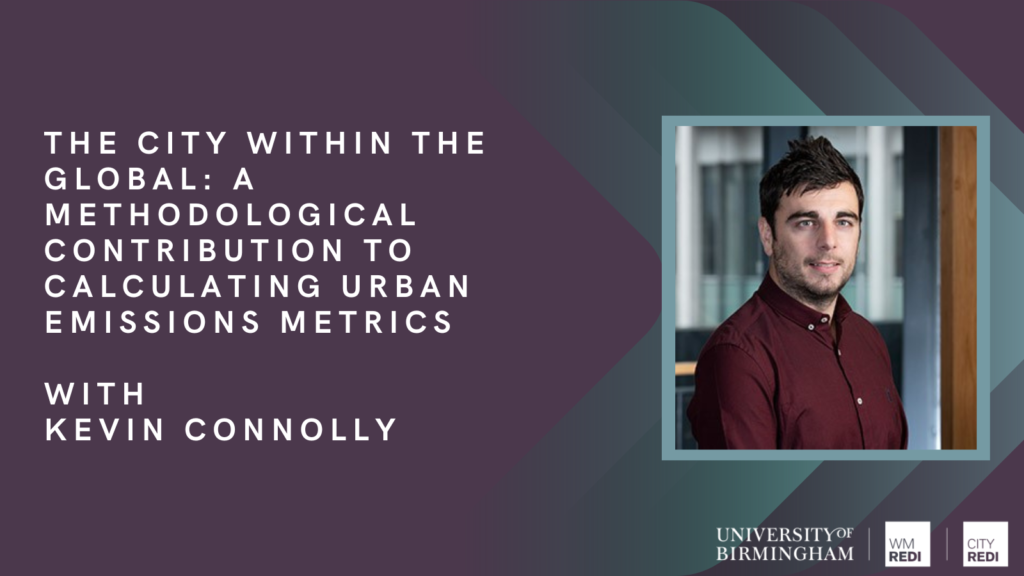
On 4th May 2023, City-REDI held a hybrid seminar with Kevin Connolly from the University of Strathclyde about calculating urban emissions. Watch the seminar below.
In line with national targets, sub-national governments – including cities – are introducing targets to reduce emissions. Cities are important drivers of not only emissions but also economic activity and are embedded into complex economic systems which reach beyond their boundaries, which can raise major issues in identifying whether a city is assisting in promoting sustainability across a wider spatial level.
This paper set out a methodology to downscale global Input-Output tables to the city level and use these to calculate production- (territorial) and consumption-based carbon accounts at the city level. Illustrating this for the case of Glasgow, Scotland, we show that territorial emissions are significantly lower than its consumption-based carbon footprint (considering both the Areal and Personal Carbon Footprint), but that both metrics are sensitive to assumptions about the emissions intensity of individual sectors.
The results highlight the importance of data quality and accuracy, and the benefits of local knowledge, rather than the unquestioned use of national metrics.
